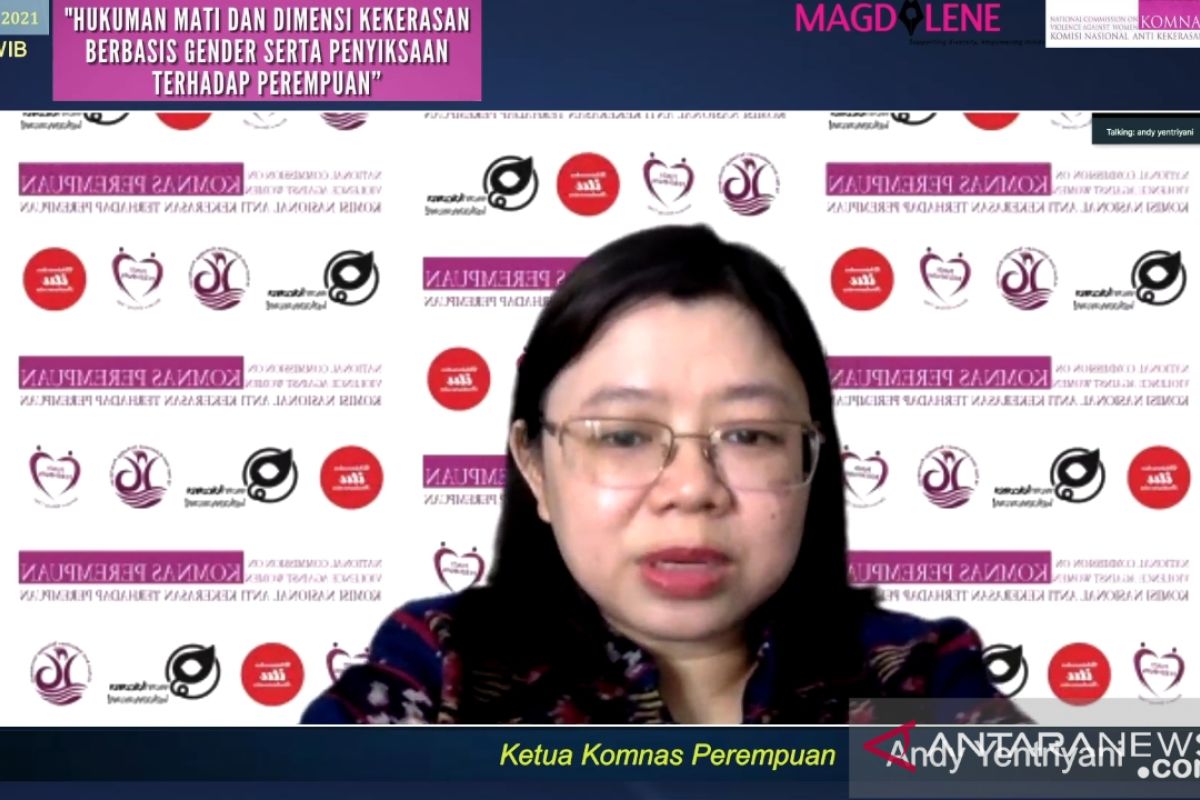If we observe, women awarded death penalty were the victims of domestic violenceJakarta (ANTARA) - Death penalty on women is one of the catalysts of violence and gender-based discrimination against womankind, Chairwoman of the National Commission on Violence against Women (Komnas Perempuan) Andy Yentriyani stated.
"To live is a real and fundamental human right under any circumstances. However, there is still a contradiction between the constitutional mandate and the legal system at the national level," Yentriyani noted at the discussion "The Death Penalty and Dimensions of Gender-Based Violence and Torture against Women" here on Monday.
Referring to this year's data from the Ministry of Foreign Affairs, Yentriyani cited that some 201 Indonesian citizens, with 40 being women, were at risk of life execution overseas.
Yentriyani noted that they are convicted in several cases, of which 64 percent are related to international narcotics syndicates and 33 percent are charged with murder cases in self-defense from rape.
Malaysia and Saudi Arabia are the two countries with the highest cases of migrant workers facing death penalty, she pointed out.
Until now, Yentriyani noted that death penalty is still lawful as a punishment for certain criminal acts. However, it is not uncommon that women facing death penalty had been the victims of violence.
"If we observe, women awarded death penalty were the victims of domestic violence," Yentriyani pointed out.
She noted that most of these women faced death sentence due to self-defense against physical and psychological violence.
In addition, Yentriyani noted that several women, who are death row inmates, were initially the victims of human trafficking, with the objective of selling narcotics.
Moreover, she noted that the strong influence of patriarchy in society makes women often dependent on men, both economically and psychologically.
As a result, she noted that they are often used for criminal acts, for instance, to work as drug couriers and are eventually given death penalty.
Citing the findings of the commission, Yentriyani remarked that women subject to death penalty seem to be thrown away by their own families.
"It is as though they were banished by their families due to the stigma that attaches them," she affirmed.
Hence, based on the institution's study, death penalty for women is the worst scenario of gender-based violence and discrimination against womankind.
Related news: Women's economic empowerment needs joint synergy: minister
Related news: Death penalty highest form of violence against women: Komnas Perempuan
Related news: Komnas Perempuan records 36,356 domestic violence cases in five years
Translator: M Zulfikar, Kenzu T
Editor: Sri Haryati
Copyright © ANTARA 2021









